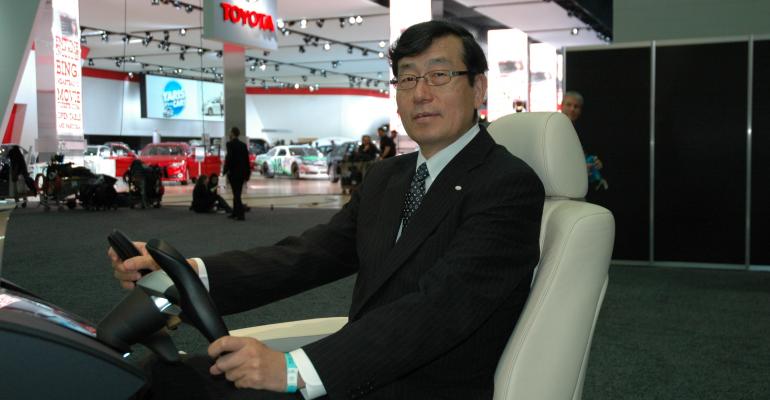DETROIT – To the casual observer, automotive heating, ventilation and air conditioning might appear to be must-have commodity products with little value-added content, but not to Denso.
Japan’s largest auto supplier , which is the No.1 producer of automotive thermal management systems with about 30% of the global market, sees broad opportunities for high-tech additions to its HVAC portfolio as electric vehicles present new challenges in ways to generate heat within the passenger compartment.
This explains Denso’s announcement this week here at the North American International Auto Show of plans for a new HVAC plant in Silao, Guanajuato, Mexico.
It will be Denso’s third plant in Mexico, but the first dedicated to thermal products. Denso has three HVAC plants in Michigan, one in Arkansas and one in Canada.
“Mexico is the right decision for us because it completes our thermal manufacturing footprint in North America,” Hikaru “Howard” Sugi,president of Denso International America, says at the press conference.
“Mexico is a growing market, and this is an opportunity for us to strengthen our competitiveness and our global leadership position,” he says.
Construction of the $57 million facility is set to begin in October 2013. Some 400 employees are expected by 2015.
Getting close to its customer base is a primary reason for the new plant.
Several auto makers are ramping up vehicle production in Mexico, and Audi executives extol the virtues of Mexico in interviews this week about plans for the auto maker’s first North American assembly plant.
Denso has identified Ford and Honda as its first customers for the new operations in Mexico. Nissan also has a plant 100 miles (160 km) away in Aguascalientes producing the Sentra, Tiida/Versa and March.
Much farther away, in Tijuana, is Toyota’s plant, which assembles the Tacoma pickup. Toyota owns about 25% of Denso.
Sugi says the new Silao plant will supply HVAC units only to vehicle-assembly plants in Mexico, not the U.S.
Thermal systems are Denso’s most important product sector, representing 30% of sales.
As electric vehicles become more popular, Sugi says thermal systems will evolve to provide critical cooling of battery modules and motors while at the same time keeping the passenger compartment comfortable for occupants.
Conventional AC systems require a compressor powered by the engine. “In an electric vehicle, the compressor moves to an electrically driven type, which needs a small battery and an inverter,” Sugi tells WardsAuto in an interview here.
He predicts EVs will make up as much as 10% of the global vehicle market by 2020.
Likewise, stop/start systems, which are gaining acceptance as a method of saving fuel by shutting down the engine while idling at traffic lights, create a market for Denso’s electrically driven water pumps.
As engines become smaller and integrate turbocharging, this drives demand for additional Denso products such as exhaust-gas recirculation valves and heat exchangers.
“It all requires thermal management, which means our content is increasing,” Sugi says.
With skyrocketing demand for forced induction, Denso is considering entering the turbocharger market, Sugi says.
Established players BorgWarner, Honeywell (Garrett) and Japan’s IHI now are joined by new entries, including Continental and Bosch Mahle.
Denso, which has its North American headquarters and tech center in Southfield, MI, is stepping up its development of hybrid products, such as batteries and stop/start systems. It also is building a battery-cooling lab in Southfield that will add up to 40 new jobs, says Doug Patton,senior vice president-engineering for Denso America.
In addition, Patton says the supplier plans to manufacture full hybrid components at an existing U.S. plant by 2015.





